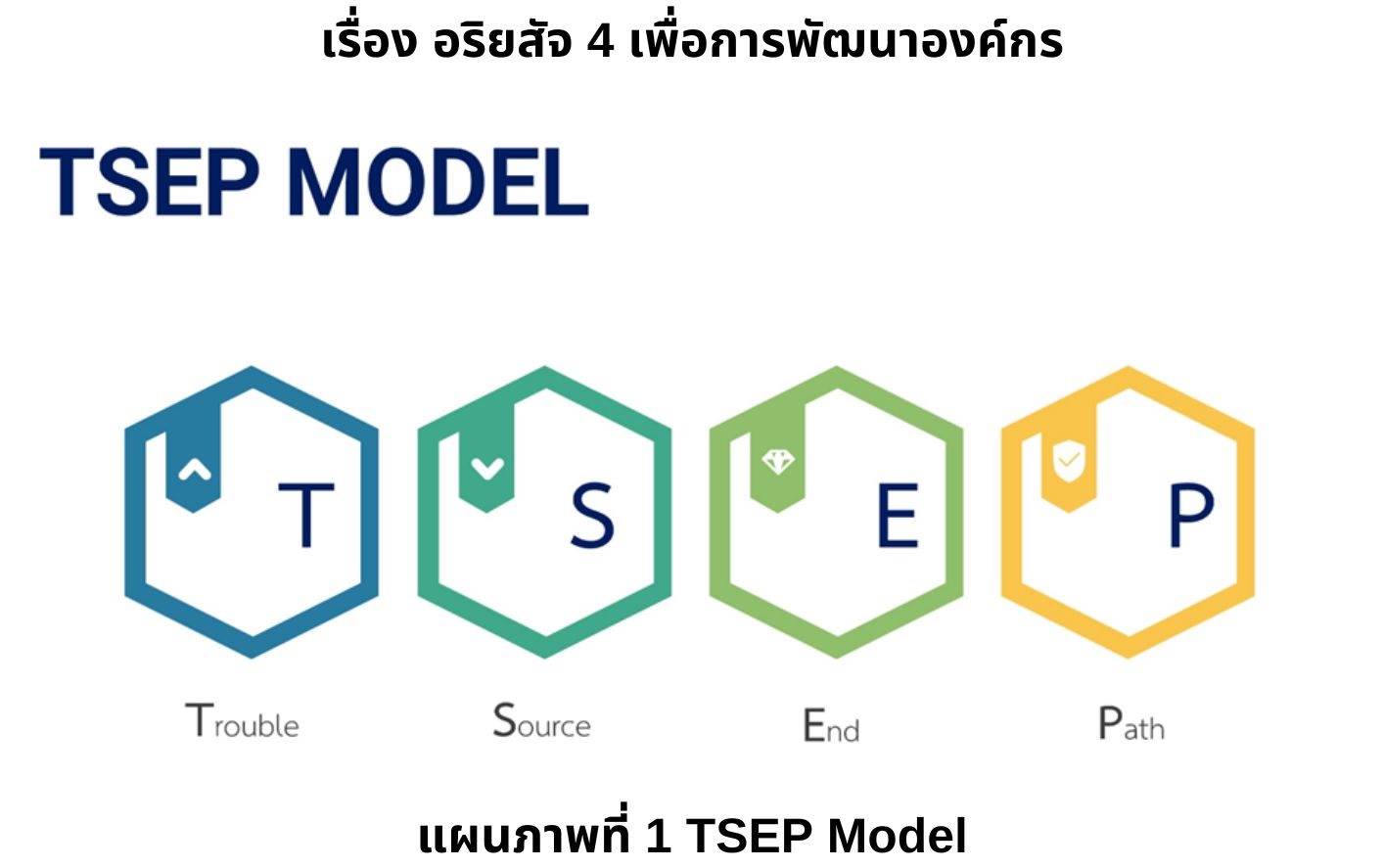อริยสัจ 4 เพื่อการพัฒนาองค์กร
คำสำคัญ:
อริยสัจ 4, การพัฒนา, องค์กร, การพัฒนาองค์กรบทคัดย่อ
การวิจัยนี้เป็นงานวิจัยเชิงคุณภาพ มีวัตถุประสงค์เพื่อศึกษาและประยุกต์ใช้หลักอริยสัจ 4 ซึ่งประกอบด้วย ทุกข์ (ปัญหา) สมุทัย (สาเหตุของปัญหา) นิโรธ (การดับปัญหา) และ มรรค (แนวทางแก้ปัญหา) สำหรับการพัฒนาองค์กร โดยใช้วิธีการวิเคราะห์เอกสาร เพื่อค้นหาแนวทางในการปรับปรุงและเพิ่มประสิทธิภาพขององค์กร ผลการวิจัยได้พัฒนาโมเดลใหม่ที่เรียกว่า TSEP Model ซึ่งย่อมาจาก Trouble, Source, End, Path โดยประกอบด้วย 4 ขั้นตอนสำคัญ ได้แก่ 1) การระบุปัญหา 2) การวิเคราะห์สาเหตุ 3) การกำหนดเป้าหมาย และ 4) การดำเนินแนวทางแก้ไข โมเดลนี้สามารถนำไปประยุกต์ใช้ในองค์กรเพื่อช่วยระบุปัญหา ค้นหาสาเหตุ กำหนดเป้าหมายที่ชัดเจน และวางแผนแก้ไขปัญหาอย่างเป็นระบบ โดยผลการศึกษาพบว่า การนำหลักธรรมดังกล่าวมาใช้ช่วยเพิ่มประสิทธิภาพการสื่อสารในทีม หรือ การปรับปรุงกระบวนการทำงานร่วมกัน
เอกสารอ้างอิง
ณัฏฐพันธ์ เขจรนันทน์. (2551). พฤติกรรมองค์การ. กรุงเทพฯ : ซีเอ็ดยูเคชั่น.
นรชัย ณ วิเชียร และคณะ. (2562). อริยสัจ 4 กับการพัฒนาองค์กร. Journal of Humanities and Social Sciences Thonburi University, 13(1), 165-174.
พงศ์นคร โภชากรณ์. (2567). การบูรณาการหลักพุทธธรรมเพื่อพัฒนาการบริหารจัดการโครงการลงทะเบียนเพื่อสวัสดิการแห่งรัฐ. วารสารสหวิทยาการนวัตกรรมปริทรรศน์, 7(3),170-184.
พระธรรมปิฎก (ป.อ.ปยุตฺโต). (2541). ประโยชน์สูงสุดของชีวิต. กรุงเทพฯ : ธรรมสภา.
พระพรหมคุณาภรณ์ (ป.อ. ปยุตฺโต). (2557). พุทธธรรม ฉบับปรับขยาย. (พิมพ์ครั้งที่ 37). กรุงเทพฯ : มหาจุฬาลงกรณ์ราชวิทยาลัย.
ศิริวรรณ เสรีรัตน์. (2541). การบริหารเชิงกลยุทธ์. กรุงเทพฯ : พัฒนาศึกษา.
สุวิมล มธุรส. (2563). ปัจจัยความสําเร็จของผู้ประกอบการธุรกิจขนาดกลางและขนาดย่อมในเขตพื้นที่ภาคกลางของประเทศไทย. ดุษฎีนิพนธ์บริหารธุรกิจดุษฎีบัณฑิต. บัณฑิตวิทยาลัย : มหาวิทยาลัยรังสิต.
อาภรณ์ ภู่วิทยพันธุ์. (2551). กลยุทธ์การพัฒนาทรัพยากรมนุษย์. กรุงเทพฯ : เอชอาร์เซ็นเตอร์.
Porter, L.W., Lawler, E. and Hackman, J.R. (1975). Behavior in Organizations. Tokyo : McGraw- Hill Kogaku Sha.

ดาวน์โหลด
เผยแพร่แล้ว
รูปแบบการอ้างอิง
ฉบับ
ประเภทบทความ
สัญญาอนุญาต
ลิขสิทธิ์ (c) 2025 วารสารสถาบันพอดี

อนุญาตภายใต้เงื่อนไข Creative Commons Attribution-NonCommercial-NoDerivatives 4.0 International License.



